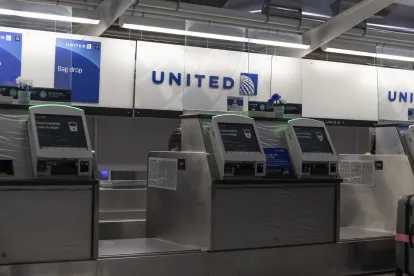The U.S. Architectural and Transportation Barriers Compliance Board (commonly known as the Access Board) announced that it intends to issue an Advance Notice of Proposed Rulemaking (ANPRM) under the Americans with Disabilities Act (ADA) and the Architectural Barriers Act (ABA) in August 2022 that would create scoping and technical standards for self-service transaction devices. Any such rulemaking could impact the increasingly common use of technology in everyday commerce, ranging from self-service checkout aisles in grocery stores and big-box retail establishments, to ticketing kiosks for movies, theatres, and sports venues, not to mention all point-of-sale devices.
In addition, more and more health care providers and other professionals utilize tablets and similar devices to assist with check-in, registration, provision of medical and other histories, consent forms, and other uses.
The announcement follows years of ongoing litigation, principally by the blind and visually impaired, challenging the use of touchscreen technology in commerce and pressing for requirements that businesses provide devices that permit independent access for these groups in the same way that ATMs and airline kiosks currently must. The Access Board’s announcement reinforces arguments from the business community that independently accessible devices have not been required up until now and that it would be imprudent for advocates or the courts to require them in the wake of the pending rulemaking process.
Based on existing scoping and design standards, ATMs and airline kiosks have been required to facilitate access to the blind by providing audio output of text appearing on screen, accessible through a headphone jack, coupled with some form of tactile keyboard or voice recognition to communicate with the devices. When creating standards for those devices, the Access Board expressly declined to create requirements or design standards for the many other kinds of “interactive transaction machines.” While it is unclear at this stage if the Access Board will simply duplicate the ATM/airline kiosk standard (Advisory 707) and apply it across a broader range of devices, that approach is the most likely result given the decades of experience with accessible ATMs and recent years with airline kiosks.
The Access Board’s rulemaking process will involve a standard series of comment periods and public hearings that could take several months before a rule is finalized. Before an Access Board regulation can be made legally binding on private entities, another applicable government agency will have to adopt and incorporate the Access Board standard through its own regulatory process, which will include its own comment periods and public hearings. In the case of private businesses open to the public (namely, public accommodations) and state and local governments, the U.S. Department of Justice (DOJ) holds the power to regulate under Titles II and III of the ADA. Health care industry members may be obligated to comply under the Affordable Care Act and any regulations issued by the U.S. Department of Health and Human Services (HHS).
The promulgation of regulations in this area raises a multitude of questions and possibilities. When it comes to scoping—or what the regulation covers—a key question will be whether the regulation will apply to all self-service devices, or, for example, only those that involve the payment of funds. The technical standards will likewise raise numerous questions about exactly how the devices should be made accessible and whether human assistance offered to customers can replace the need for an accessible device. A strong response from the business community will help guide the regulators on how their actions could impose massive costs and other difficulties in this area.




 />i
/>i

